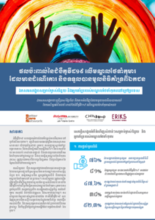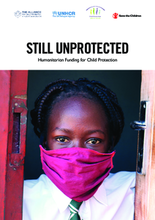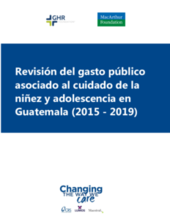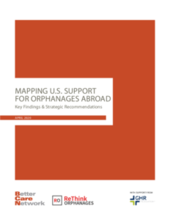Displaying 51 - 60 of 189
This study was a small-scale piece of qualitative research that involved 21 semistructured interviews with founders, funders, and directors of RCIs across 7 countries. It was designed to better understand the impacts of COVID-19 on the operations of residential care institutions including funding, staffing, volunteering, children’s care, education, family connection and reintegration.
Despite the growing need for investment in early childhood development in emergencies (ECDiE), no methodology currently exists to track and report on donor commitments and funding. This report aims to help fill that gap by estimating funding going to ECDiE in recent years.
In this paper, the authors present the evidence on why childcare matters for building human capital, look at the current status of childcare provision worldwide, including an estimate of the global gaps in access, and present specific actions countries can take to expand access to quality, affordable childcare for all families that need it, especially the most vulnerable.
This report builds on analysis undertaken in 2019 and incorporates 2019 and 2020 funding and additional funding streams related to refugee contexts to get an updated picture of the state of child protection funding in humanitarian contexts.
Este documento profundiza en la investigación de la inversión pública en aquellos programas o actividades en Guatemala que tienen como beneficiario final la niñez y adolescencia, separado de sus progenitores y que crece bajo el abrigo de una institución o de una familia extendida o sustituta.
The Organizational Governance and Accountability Checklist is designed to help determine whether an organisation providing residential care services, and the principal donor (where the principal donor represents an entity), have sufficient governance and accountability structures in place to mitigate, manage and address risks or issues that may arise in the course of transitioning the model of care.
A cost analysis was conducted as part of a 5-year, federally funded statewide demonstration project to install universal trauma screening in one U.S. state’s child welfare system.
This article will make a case for investing in families and communities rather than orphanages by putting a spotlight on ECFG member investments in Asia.
This report lays out the results of a preliminary mapping exercise to document the ways in which the United States supports and perpetuates overseas orphanages. It is based on: an analysis of existing data; a literature review of U.S government publications and investments; a review of non-profit organizations and foundation activities; an analysis of key supply chains and stakeholders; and the identification of existing data gaps.
The purpose of this paper is to examine child characteristics and child welfare services associated with high welfare costs in the US, defined as the top decile of child welfare costs.








